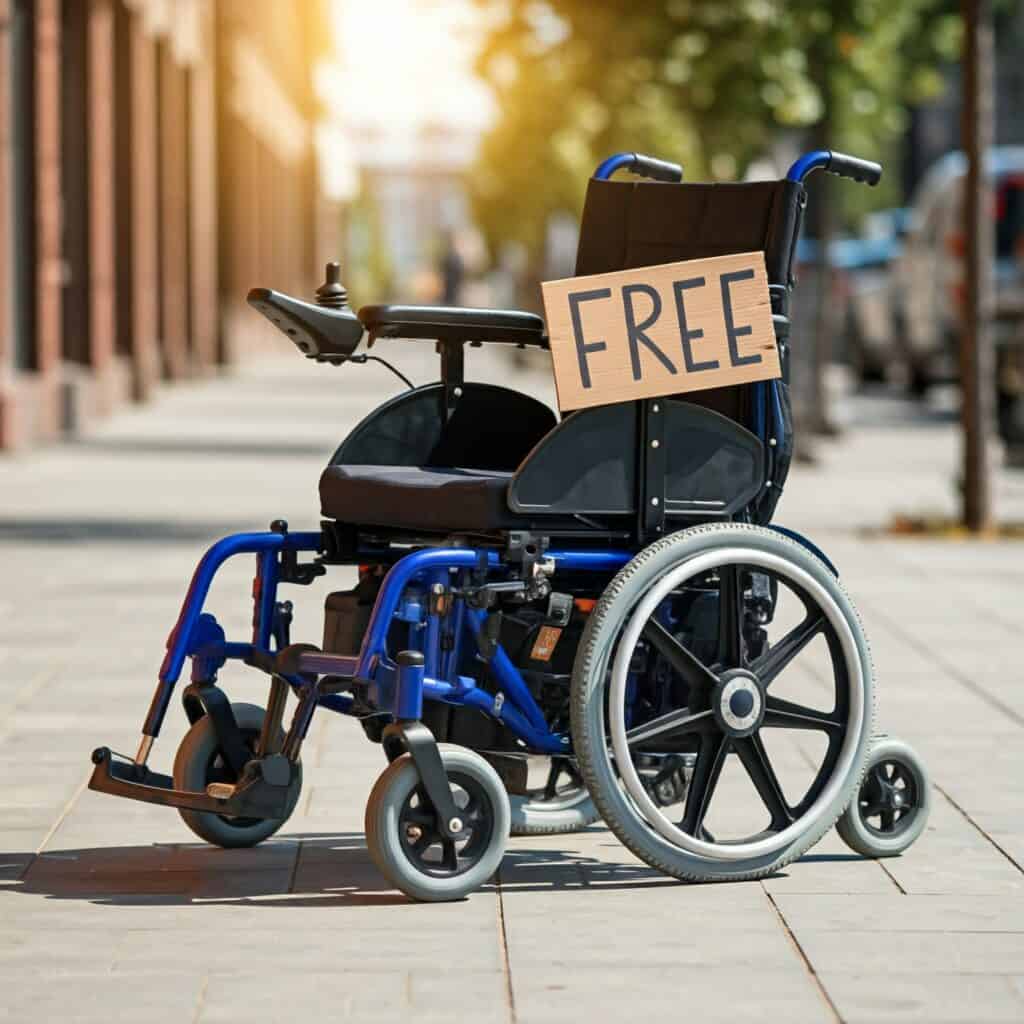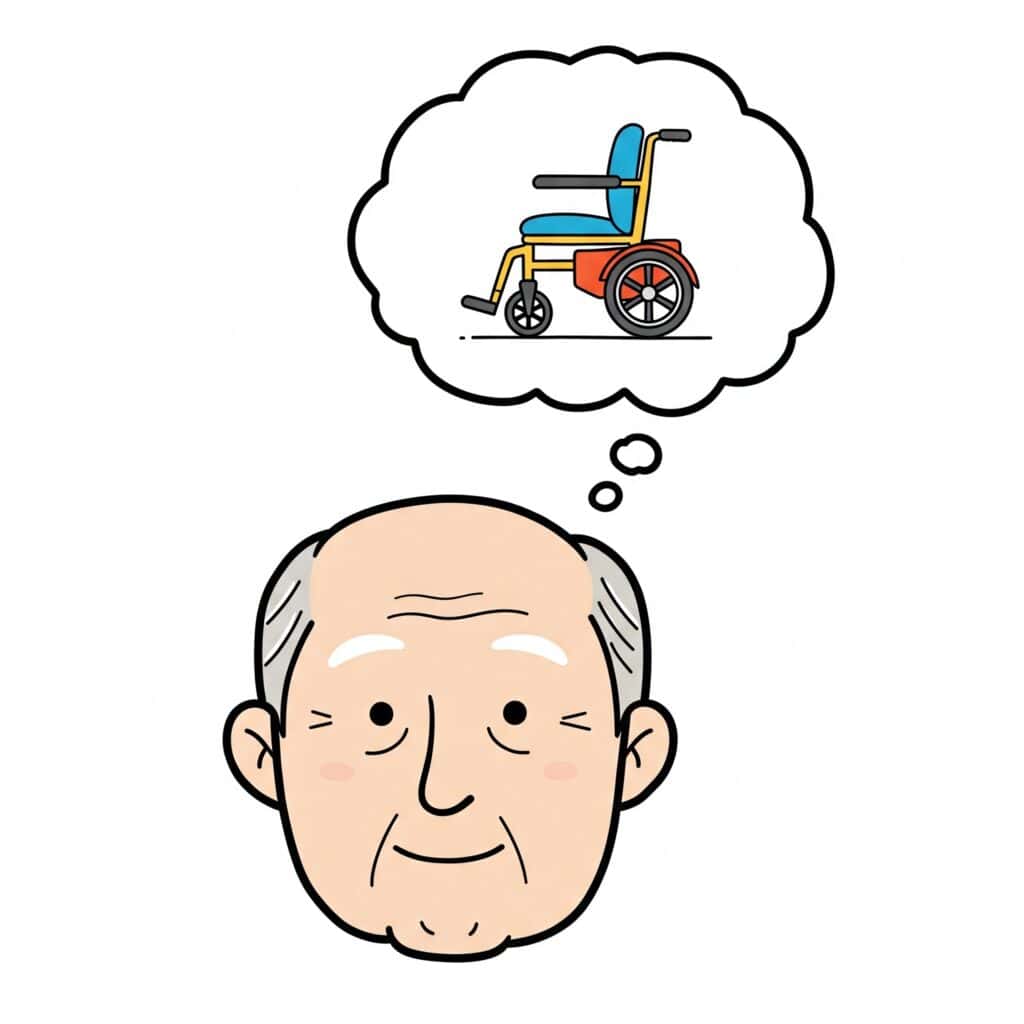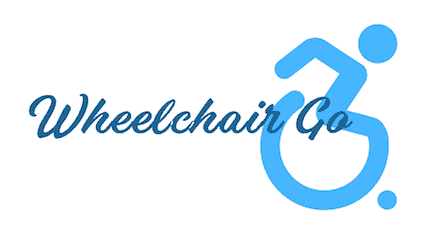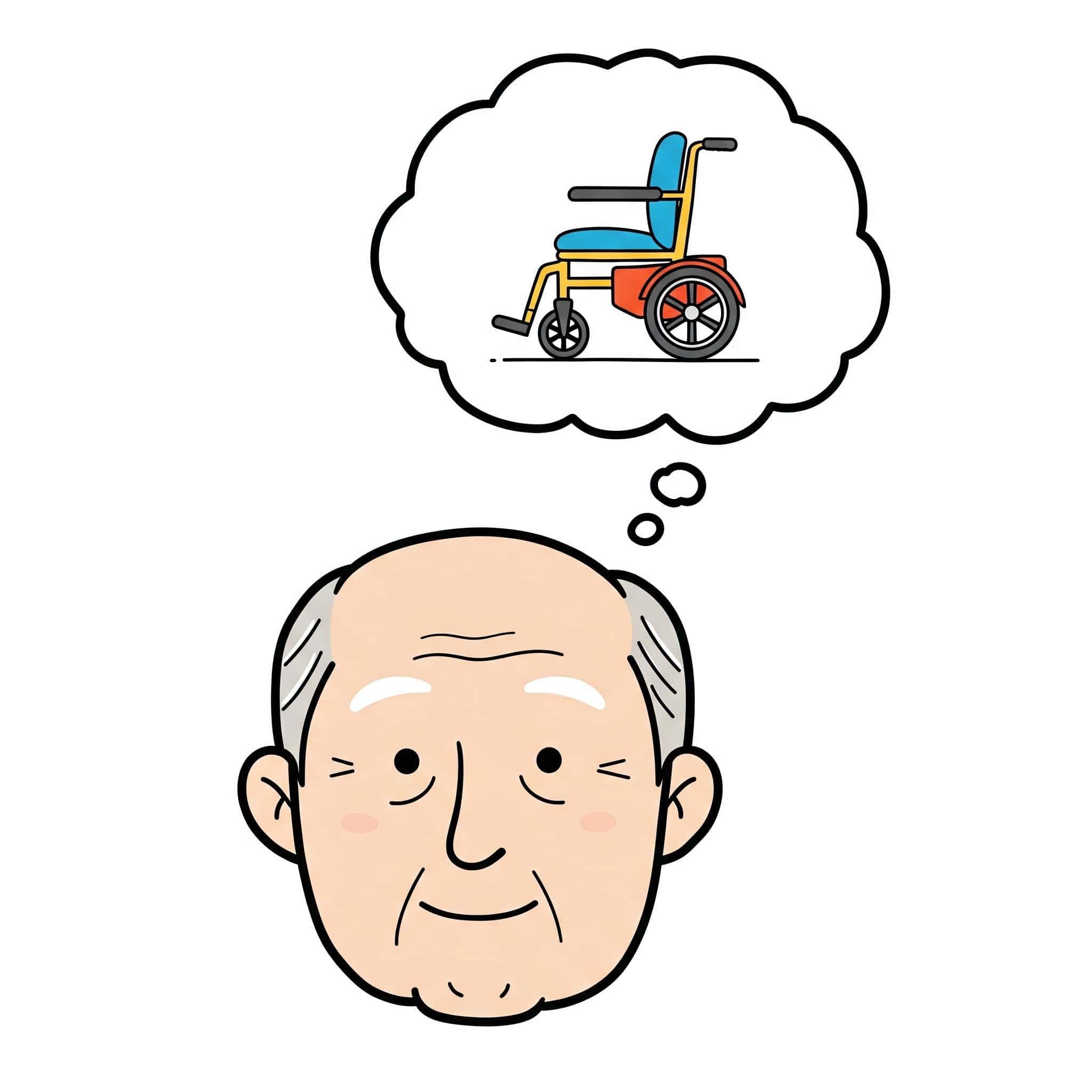Introduction
Imagine your grandmother, once a vibrant soul, now confined to a manual wheelchair. Her once-sparkling eyes, now dimmed by the weight of her limitations. It’s a heartbreaking sight, isn’t it?
The good news is, there are avenues to restore her independence. Free electric wheelchairs for Seniors can be a life-changing solution, providing seniors with the freedom to move about, socialize, and enjoy life to the fullest.
In this comprehensive guide, we’ll delve into the world of free electric wheelchairs. We’ll explore government programs, charitable organizations, and other resources that can help you secure this essential mobility aid. By the end of this article, you’ll have a clear understanding of the steps involved and the eligibility criteria to qualify for a free electric wheelchair. Let’s embark on this journey together and empower seniors to reclaim their mobility.

Understanding Eligibility Criteria
To qualify for a free electric wheelchair, you’ll need to meet specific eligibility criteria. These criteria vary depending on the program or organization you’re applying to. Let’s explore some of the common factors that determine eligibility.
Income-Based Eligibility
Many programs prioritize individuals with low incomes. To determine eligibility, organizations often refer to the Federal Poverty Guidelines. These guidelines establish income thresholds for different household sizes. If your income falls below these thresholds, you may be eligible for assistance. Additionally, some state-specific programs have their own income eligibility requirements.
Disability-Based Eligibility
Individuals with disabilities that significantly impact their mobility are often eligible for free or subsidized electric wheelchairs. Programs like Social Security Disability Insurance (SSDI) and Supplemental Security Income (SSI) can provide financial assistance for medical equipment, including wheelchairs. Medicaid, a joint federal-state program, also covers durable medical equipment for eligible individuals.
Age-Based Eligibility
While age alone isn’t a primary factor, programs like Medicare can cover power wheelchairs under specific circumstances. These typically involve severe mobility impairments that necessitate the use of a power wheelchair. However, it’s important to note that Medicare coverage for wheelchairs can be limited and subject to specific requirements.
Other Factors
Other factors that may influence eligibility include veteran status and specific medical conditions. Veterans with service-connected disabilities may qualify for VA benefits that cover the cost of a wheelchair. Additionally, individuals with certain medical conditions, such as multiple sclerosis or spinal cord injuries, may be eligible for specialized programs or grants.
Government Programs and Initiatives
Navigating the landscape of government programs can be daunting, but understanding the potential benefits can significantly impact a senior’s quality of life. Let’s explore some key government initiatives that may provide access to free or subsidized electric wheelchairs.
Medicare
While Medicare is primarily a health insurance program for seniors, it may cover power wheelchairs under specific circumstances. If a doctor determines that a power wheelchair is medically necessary for mobility, it may be covered under Medicare Part B. However, it’s important to note that Medicare has strict guidelines and limitations. It’s crucial to consult with your doctor and Medicare provider to understand specific coverage details.
Medicaid
Medicaid, a joint federal and state program, provides health coverage to low-income individuals, including many seniors. Eligibility for Medicaid varies by state, but it often covers durable medical equipment (DME), such as electric wheelchairs. If you qualify for Medicaid, you may be able to obtain a free or subsidized electric wheelchair through your state’s Medicaid program.
Veterans Affairs
For veterans with disabilities, the Veterans Affairs (VA) department offers a range of benefits, including assistance with obtaining mobility devices. If a veteran’s disability is service-connected and requires the use of a wheelchair, the VA may provide a free electric wheelchair. To determine eligibility, veterans should contact their local VA healthcare facility.
State and Local Programs
Many states and local governments offer programs to assist individuals with disabilities in obtaining mobility aids. These programs may provide funding for purchasing or renting electric wheelchairs, or they may partner with charitable organizations to offer subsidized or free devices. To identify potential programs in your area, consider contacting your local Area Agency on Aging, disability rights organizations, or your state’s department of health and human services.

Charitable Organizations and Non-Profit Groups
Charitable organizations and non-profit groups play a vital role in providing affordable or free electric wheelchairs for seniors. These organizations often have programs specifically designed to assist individuals with disabilities, including those who are elderly. Let’s explore some of the organizations that may be able to help.
National Organizations
United Way
The United Way is a well-known charitable organization that supports a wide range of community needs, including disability services. While they may not directly provide free electric wheelchairs for Seniors in particular or even wheelchairs in general, they can often connect individuals with local organizations that do. By contacting your local United Way office, you can inquire about potential assistance programs and resources.
Easter Seals
Easter Seals is a national organization dedicated to helping individuals with disabilities live full and inclusive lives. They offer a variety of services, including assistive technology, therapy, and support programs. While they may not always have free wheelchairs available, they can provide guidance and referrals to other organizations that do.
National Disability Rights Network (NDRN)
The NDRN is a national organization that advocates for the rights of people with disabilities. While they don’t directly provide wheelchairs, they can help individuals understand their rights and access government benefits. They can also provide information on disability-related laws and regulations.
Local Organizations
Community Action Agencies
Community Action Agencies (CAAs) are local level organizations that provide a variety of services to low-income individuals and families. These services may include assistance with housing, food, and healthcare. Some CAAs may also have programs to provide or assist with the purchase of assistive devices like wheelchairs.
Disability Resource Centers
Disability Resource Centers (DRCs) are organizations that provide information and support to people with disabilities. They can help individuals understand their rights, access government benefits, and find assistive devices. Some DRCs may have partnerships with organizations that provide free or affordable wheelchairs.
Faith-Based Organizations
Many faith-based organizations offer charitable programs to help people in need. These organizations may have funds available to assist with the purchase of wheelchairs or other assistive devices. It’s worth checking with local churches, synagogues, or other religious institutions to see if they have any programs that can help.

Tips for Obtaining a Free Electric Wheelchair
Navigating the process of obtaining a free electric wheelchair can be a complex journey. Here are some essential tips to help you maximize your chances of success:
Document Your Medical Needs
The first step is to obtain a comprehensive medical evaluation from a qualified healthcare provider. This evaluation should clearly document your specific mobility limitations and the need for an electric wheelchair. A detailed prescription from your doctor will serve as crucial evidence to support your application.
Complete Applications Thoroughly
When applying for government programs or charitable organizations, pay close attention to the specific requirements and deadlines. Complete all sections of the application accurately and provide any requested documentation, such as proof of income, disability, or veteran status. Consider seeking assistance from a social worker or case manager to help you navigate the application process.
Don’t Give Up on Appeals
If your initial application is denied, don’t be discouraged. Many programs have a formal appeals process. Gather additional medical evidence, such as recent medical records or letters from therapists, to strengthen your case. Consult with a healthcare advocate or legal professional to understand the appeals process and develop a strong appeal.
Explore Rental Options
If obtaining a free electric wheelchair proves challenging, consider exploring rental options. Some organizations offer short-term or long-term rental programs, which can be a viable solution while you continue to pursue other avenues. Additionally, certain programs may provide financial assistance to help cover rental costs.
By following these tips and remaining persistent, you can increase your chances of securing a free electric wheelchair and enhancing your mobility.

As we suggested at the outset, securing free electric wheelchairs for seniors can significantly improve the quality of life for seniors with mobility limitations. By exploring government programs like Medicare, Medicaid, and Veterans Affairs, as well as charitable organizations and local resources, individuals can access the support they need. Remember to document your medical needs thoroughly, complete applications diligently, and don’t hesitate to appeal denials. For those who may not qualify for a free wheelchair, consider exploring rental options or purchasing an affordable electric wheelchair. By taking proactive steps and seeking assistance, seniors can regain their independence and enjoy a more fulfilling life.

